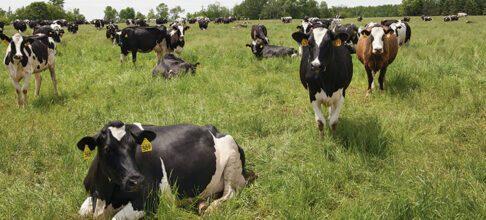Nissan has pledged a staggering £2 billion investment into the UK's electric vehicle (EV) production, igniting a transformative surge in the nation's automotive industry. The investment aims to introduce two new electric vehicle models to be manufactured at their Sunderland plant, marking a pivotal stride towards enhancing sustainable transportation and economic prosperity.
This momentous announcement, made by the Prime Minister, emphasises Nissan's commitment to revolutionise the automotive landscape. The colossal investment, inclusive of £1.12 billion for the production of two EV models, is anticipated to instigate a ripple effect, fostering advancements in infrastructure projects and the supply chain.
Crucially, it includes the establishment of a new gigafactory, solidifying the total investment sum at an unprecedented £2 billion.
Furthermore, the initiative builds upon the foundation laid by Nissan and their battery partner AESC in 2021, reinforcing the trajectory towards a green future. This remarkable investment, totalling £3 billion since 2021, secures the future of the UK's largest car factory, signalling a pivotal shift away from traditional petrol and diesel vehicles.
The pivotal aspect of this investment lies in the introduction of all-electric replacements for the Nissan Juke and Qashqai models, aligning with the company's commitment to embrace a fully electric fleet by 2030 across Europe. This strategic move not only ensures the sustainability of Nissan's 7,000-strong UK workforce but also fortifies the support extended to the 30,000 employees within the broader supply chain.
The implications of this substantial investment transcend the immediate production scale. It reaffirms the UK's stature as a global frontrunner in Electric Vehicle manufacturing, mirroring the government's steadfast dedication to fostering economic growth while propelling the nation toward its net-zero ambitions.
The historical significance of the Sunderland plant, operational since 1986, is further underscored by this colossal investment. Having churned out its 11 millionth vehicle earlier this year, the plant's stellar productivity and evolution into one of Europe's prime car manufacturing hubs paint a picture of relentless innovation and growth.
In addition to bolstering manufacturing capabilities, the investment cascades into bolstering research and development endeavours.
A collaborative project spearheaded by Nissan, with an allocated £15 million funding, aims to amplify the zero-emission vehicle capability of the Nissan Technical Centre (NTCE) in Cranfield, Bedfordshire. This initiative not only amplifies the technical expertise but also paves the way for future R&D investments in vehicle models.
This groundbreaking announcement precedes the Global Investment Summit, where the Prime Minister is slated to host influential CEOs and financiers, including Nissan's CEO, Makoto Uchida. The summit anticipates an influx of high-value investments that will burgeon job creation, particularly in high-tech sectors, augmenting innovation and research and development.
The resounding endorsement from key government figures echoes the magnitude of Nissan's investment. Prime Minister Rishi Sunak lauds this as a substantial vote of confidence in the UK's automotive prowess, underscoring how this venture will solidify Sunderland's status as a hotbed for electric vehicle innovation.
Additionally, the Chancellor of the Exchequer, Jeremy Hunt, emphasises the profound impact of Nissan's commitment, highlighting the alignment with the government's support for businesses.
Business Secretary Kemi Badenoch hails this investment as a testament to the efficacy of the government's automotive sector strategy, projecting a promising trajectory for job creation and economic growth.
This colossal investment by Nissan aligns with a series of automotive success stories, including Tata's and BMW's significant investments in gigafactories and EV production, respectively.
Chancellor Hunt's recent announcement unlocking £4.5 billion in strategic manufacturing sectors corroborates the government's unwavering support for pivotal industries.
The imminent Advanced Manufacturing Plan and the UK's first Battery Strategy, slated for publication, are poised to further solidify the nation's commitment to fostering a globally competitive battery supply chain, advancing economic prosperity, and championing the Net Zero transition.















